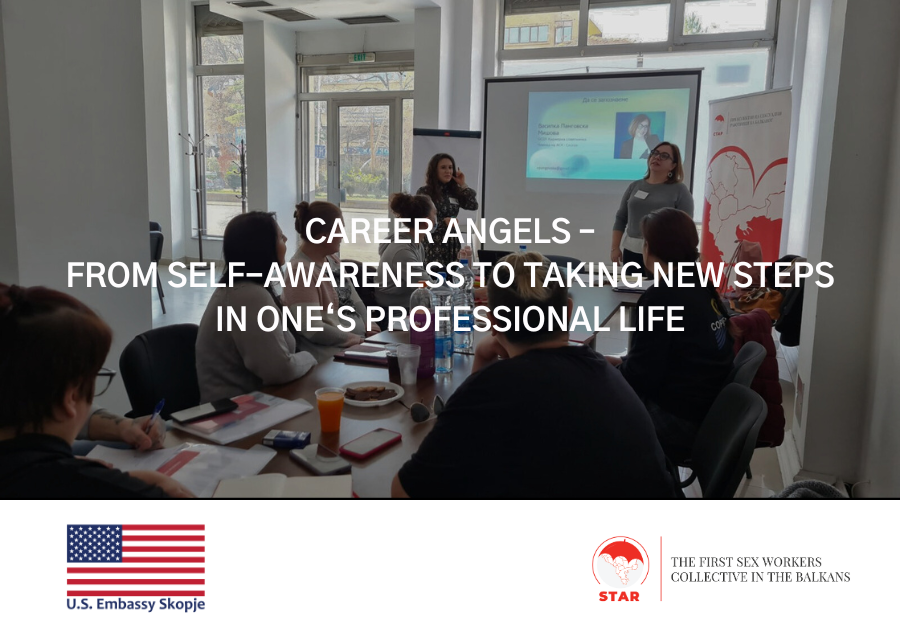Within the framework of the career counseling for women at social risk program, our career angels have gone through the first part, i.e. a total of eight sessions (from 15th February to 14th March 2024) of the Training for Career Counselors (Career Angels) among Marginalized Women in North Macedonia, and acquired skills and knowledge pertaining to the development and fulfillment of one’s career and professional goals.

By researching their own capacities, interests and skills, the eight participants, who are in actual fact representatives of marginalized communities, created a clearer vision of their desired professions and working circumstances.

In the process of self-awareness, they increased their environmental awareness, opportunities and challenges surrounding them, taking into account their strengths and weaknesses, opportunities and risks, which they will further utilize to attain their professional goals.

By means of researching the labor market, the participants gained knowledge and have had the opportunity to identify their skills for potential careers, as well as insight into how to make correct decisions in order to take new steps in their future profession or occupation.

This training, which we conduct in cooperation with Macedonian Association of counselors of career development (АSК), aims to help women at social risk to acquire skills for the realization of their own career goals and perspectives, while creating a space for the creation of continuous labor market integration of these vulnerable women.

The eight-week training program is designed to provide a relevant response to needs and contribute to reducing unemployment rates among vulnerable and marginalized women in North Macedonia.

We are conducting the career counselors (career angels) training program among marginalized women in North Macedonia within the frames of the project Career Angels – An Innovative Career Development Model for Women at Social Risk.
This project was funded through a U.S. Embassy grant. The opinions, findings, and conclusions or recommendations expressed herein are those of the implementers/authors and do not necessarily reflect those of the U.S. Government.

